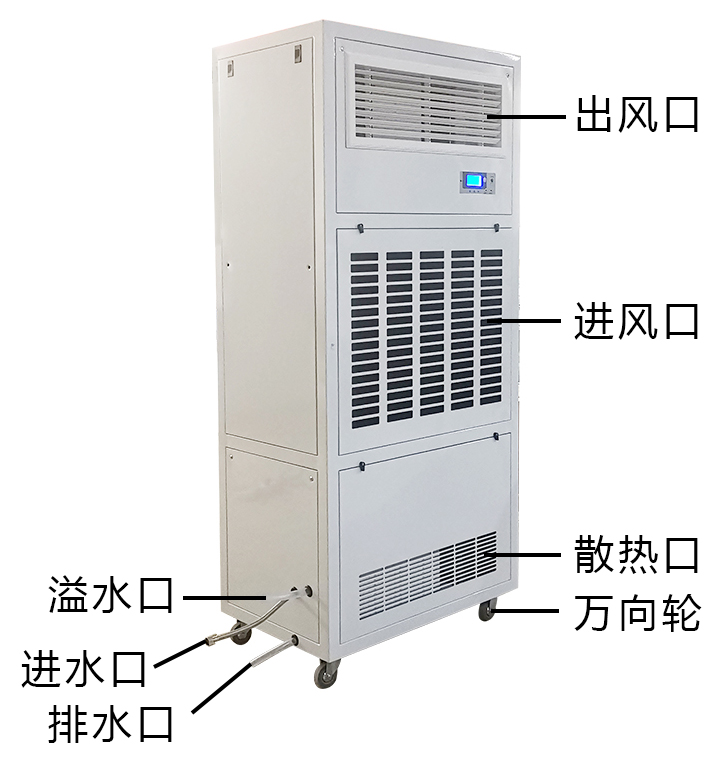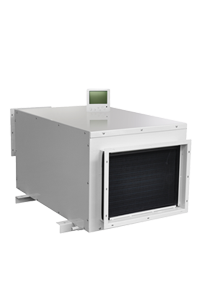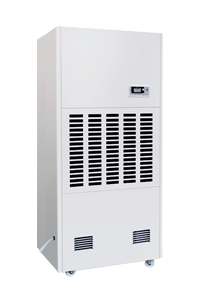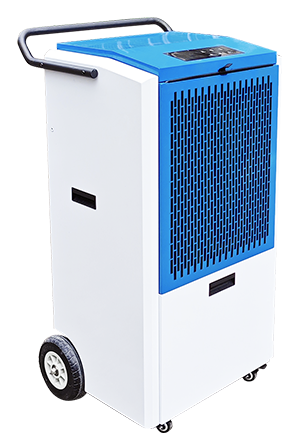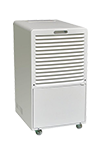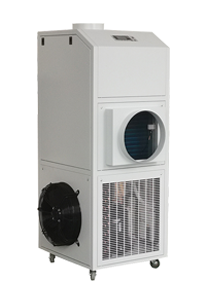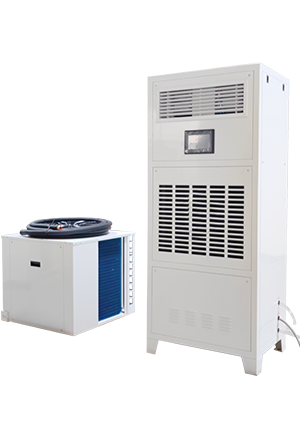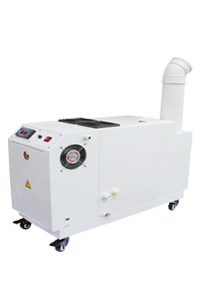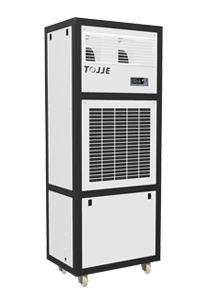News
The application of industrial dehumidifiers in the pharmaceutical industry plays an important role, mainly to ensure that the humidity control of the pharmaceutical environment meets the requirements of drug production and storage. Too high or too low humidity may affect the quality, safety and effectiveness of drugs.
Therefore, in the pharmaceutical industry, industrial dehumidifiers have the following characteristics and applications:
1. Accurate humidity control
The pharmaceutical industry has strict requirements on air humidity, especially in the production, processing, storage and other links of drugs. Industrial dehumidifiers can accurately adjust and control humidity to ensure that the ambient humidity remains within a specific range (usually 30% to 60%) to prevent drugs from getting damp or deliquescing.
● Prevent drug agglomeration: Some powdered drugs are prone to agglomeration or moisture absorption when the humidity is too high, affecting the fluidity, stability and dosage form of the drug. Therefore, this problem can be effectively reduced by controlling humidity.
● Prevent mold growth: An environment with too high humidity is prone to mold growth, which in turn affects the quality and safety of drugs. Industrial dehumidifiers can reduce air humidity to prevent this from happening.
2. Improve the stability of the production environment
In pharmaceutical production, many processes such as drying, mixing, and packaging of raw materials require certain humidity conditions. Industrial dehumidifiers ensure the smooth progress of the production process and the consistency of drug quality by maintaining stable humidity.
3. Equipment protection
Many equipment in the pharmaceutical industry, such as electronic instruments, laboratory equipment, and packaging machines, are sensitive to humidity. Excessive humidity may cause equipment to rust, short circuit, corrode, or malfunction, which in turn affects production progress. Industrial dehumidifiers can effectively control humidity, protect the normal operation of equipment, and extend its service life.
4. Improve the safety of the storage environment
For the storage of drugs, humidity is a key factor affecting the stability and effectiveness of drugs. Excessive or low humidity will affect the physical and chemical properties of drugs. For example, liquid drugs may deteriorate due to humidity changes, and solid drugs may lose their efficacy due to moisture absorption. Therefore, industrial dehumidifiers can ensure that drugs maintain stable humidity during storage and ensure the effectiveness of drugs.
5. Adapt to environmental changes
The production environment of the pharmaceutical industry often has problems with temperature and humidity fluctuations, especially in changing seasons and climatic conditions. Industrial dehumidifiers can quickly respond to environmental changes and adjust humidity levels to ensure that they are always within the ideal range.
6. Adapt to large-scale production needs
The production scale in the pharmaceutical industry is large, and the production line often involves multiple workshops or areas. Therefore, industrial dehumidifiers need to have a high dehumidification capacity and be able to cover a large area of space to ensure humidity control in multiple production links.
Summary
The application of industrial dehumidifiers in the pharmaceutical industry not only ensures the appropriate humidity of the production environment, but also improves the quality of drugs, equipment life and storage conditions. In addition, it can help companies better comply with production specifications and improve overall production efficiency. Therefore, the use of dehumidifiers in the pharmaceutical industry is indispensable, especially in the links where humidity management is strictly required.
